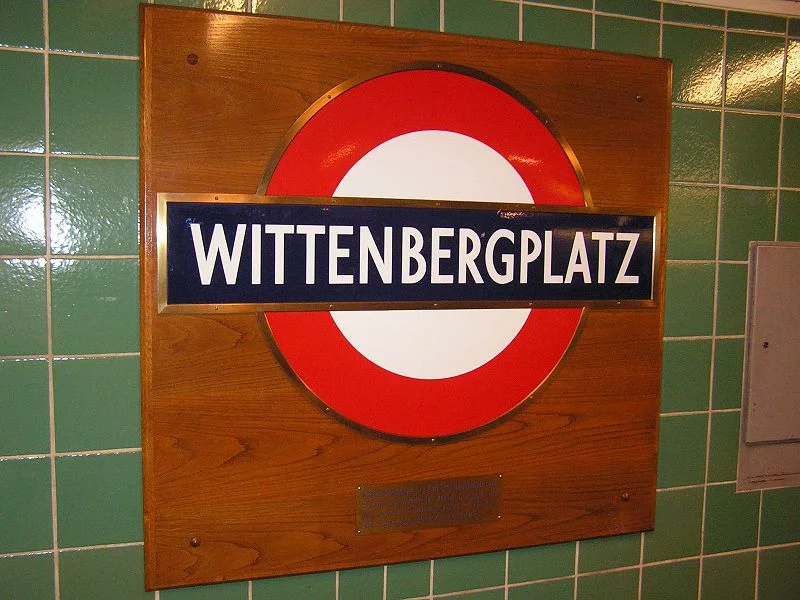Centre of the Universe
I’ve never been one for grand theories about the universe, but when I speak to someone from the UK about living in Germany, I begin to understand what is meant by ‘time is a flat circle’. Although there’s variation in the syntax and vocabulary, every single conversation I’ve had on the topic develops along the same fault line: Berlin. When I tell people I live in Augsburg, they’ll stroke their chins and say “How far away is that from Berlin?” or “Is that near Berlin?” or maddeningly “We’re going to Berlin next month, maybe we can meet up!”. For clarity, there are two reasons why these questions are annoying, the first being that travelling to Berlin from where I live isn’t some quick jaunt, it’s at least nine hours if I’m lucky. The second, my days of badly planned frisks to seemingly fun locals have been somewhat stymied by the birth of my second child, which I don’t resent, but who has put a certain dampener on all the things I used to consider “fun”.
When it’s not reminding me of my responsibilities as a parent, Berlin appears in conversation as a shorthand for Germany. English speakers will frequently tell me about how they “lived in Germany for a couple of months” by which they mean “worked in Berlin for some now defunct startup” and they’ll talk to me about Berlin things as if they were universal concepts across all parts of the country. I don’t know about you dear reader, but when someone regales me with tales of techno clubs, and drunken conversations outside Spätis till six in the morning, they might as well be telling me about taking a trip to Mars. The latest the shops stay open around where I live is 8pm - they even empty the vending machines outside as if to underline how much Bavaria hates retail after the legally mandated witching hour.
In contrast to these exciting tales from the capital, whenever the topic of Berlin comes up in conversation with German friends, it’s usually in the negative. For so many, Berlin is a synonym for disfunction, crime, or any other social ill that people my age tend to complain about. ‘It’s not Munich’ one particularly observant neighbour once said to me, as if showing off their tight grip on the geography of Deutschland. I didn’t have the heart to point out that maybe that wouldn’t be such a bad thing, after all, at least Berlin is cheaper.
The idea that Berlin is somewhat alien has some truth, it is the largest city in Germany by some distance, and from where I’m sitting, it’s so far away as to almost be a mythical location. Gondor or perhaps Mos Eisley have as much relevance to the lives of most Bavarians as Berlin does, except when politicians use it as an urban bogeyman. Minister President of Bayern, Markus Söder recently suggested Berliners should thank Bavarians at every opportunity since the southern state is the largest contributor of money to the Finanzkraftausgleich, the system of financial equalisation that takes money from the richest Bundesländer to be distributed to the less wealthy. Bavaria has been the largest contributor to the fund since 2008 and as of 2022, it paid the record sum of €9.9 billion, with Berlin the recipient of the largest amount of money, €3.6 billion or 19.5% for those keeping track. In this context, Berlin isn’t so much a capital city as a bottomless hole into which the states annually pour their tax revenue.
That Berlin is seen as both unrepresentative, and a financial burden, tends to make it an easy target for critics and unimaginative politicians. Although I know this narrative is laced with inaccuracies, it does speak to the Northern English part of my brain, after all the same story is told about London, although the topography is clearly in reverse. London may not extract wealth like Berlin, but it does lay claim to another important national resource: the arts and culture for which Britain is so famous. Theatre, art, and the literal national treasures are either on permanent display there, or will appear in London before anywhere else. Some of this culture may slowly move haphazardly around the country, but not always. Should a major cultural event occur outside the capital, this in itself will become a news story, one major example being when Banksy fronted Dismaland in Weston-super-Mare. Things have changed somewhat, with the likes of the BBC transferring more departments to Salford, near Manchester for example, but London remains the focus of the national conversation.
And why shouldn’t it be? London, like Berlin, isn’t only a cultural hub, but the seat of the national government. In this sense, they both could be seen as the centre of their respective worlds. When politicians speak, they do so from Westminster, and when people want to protest national issues, they travel to London. Additionally, both are characterised as “out of touch” with the rest of their respective countries, although the British are more inclined to break along class lines with phrases like “London media” or “Islington elite” being used to suggest that wealth and privilege blinds decision makers or media outlets to the rest of the country. This occurs in Germany too, although it’s less class driven. Berlin is also less important politically due to Germany being a federal republic. State legislatures have a far more direct impact on the lives of citizens than Berlin does, something that was made abundantly obvious through the pandemic where every state had different regulations, some far more stringent than others.
London and Berlin also differ in some other crucial areas. If a global company comes to Britain, it will locate its headquarters in London first. Britain’s largest city is a focus of business and finance, meaning that finding a suitable location in the “Big Smoke” is a sensible strategic decision for national as well as international firms. In Germany, the financial centre of the world is Frankfurt, not Berlin, and when people visit the head offices of major German companies they’re as likely to be there, or in Munich, than Berlin. Even after Angela Merkel implored more companies to move to the capital, many opened offices, but few actually use them as anything other than fancy outposts. When real business is done at Siemens, Bosch, BMW, Mercedes, Commerzbank, or Bayer, it’s done far away from the Brandenburg Gate.
I may find it a little annoying when Berlin is used as an example of German life, but in many cases that says more about me than it does about Berlin. Maybe I’m too Bavarian, or just deeply jealous that my days of raging into the night are far behind me. Either way, Berlin is Germany, and like the rest of the Bundesrepublik, it is totally unrepresentative of every other part of this surprisingly diverse country. Perhaps that’s the magic of it: Berlin is as German as anywhere else, which is to say not really that German at all.
Proofreader: @ScandiTina
Image Credit
Photo by Florian Wehde on Unsplash
Photo by Julius Drost on Unsplash
Photo by Jay Wennington on Unsplash
Photo by Claudio Testa on Unsplash
Photo by Robert Bye on Unsplash
Photo by Timo Wielink on Unsplash
Photo by Nirmal Rajendharkumar on Unsplash
Photo by Adam Vradenburg on Unsplash







